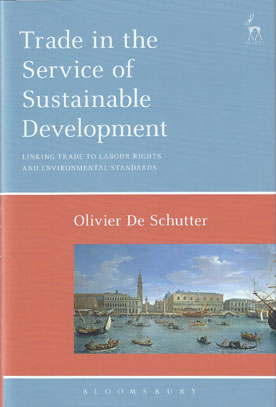
This book examines the fragmentation of international regimes, looking specifically at the failure to create effective linkages between the multilateral trade regime, on the one hand, and universally recognized labour and environmental standards, on the other.
Trade liberalization has proceeded through bilateral and regional trade agreements, as well as through successive rounds of multilateral negotiations of both the GATT and now the WTO.
Labour rights have been gradually defined at international level under the auspices of the International Labour Organization, which since its establishment led to the conclusion hundreds of instruments open for signature and ratification. Environmental standards have been set in a range of conventions, covering a range of areas including the protection of the ozone layer, hazardous waste, endangered species, biodiversity and climate change. But these developments have hitherto remained largely separate and disconnected from one another. International trade law, international labour law, and international environmental law, coexist. These various regimes are established under specific instruments.
This book explores whether fragmentation, as it has developed since the Second World War, is an obstacle to the pursuit of sustainable development, and if so, what can be done about it.